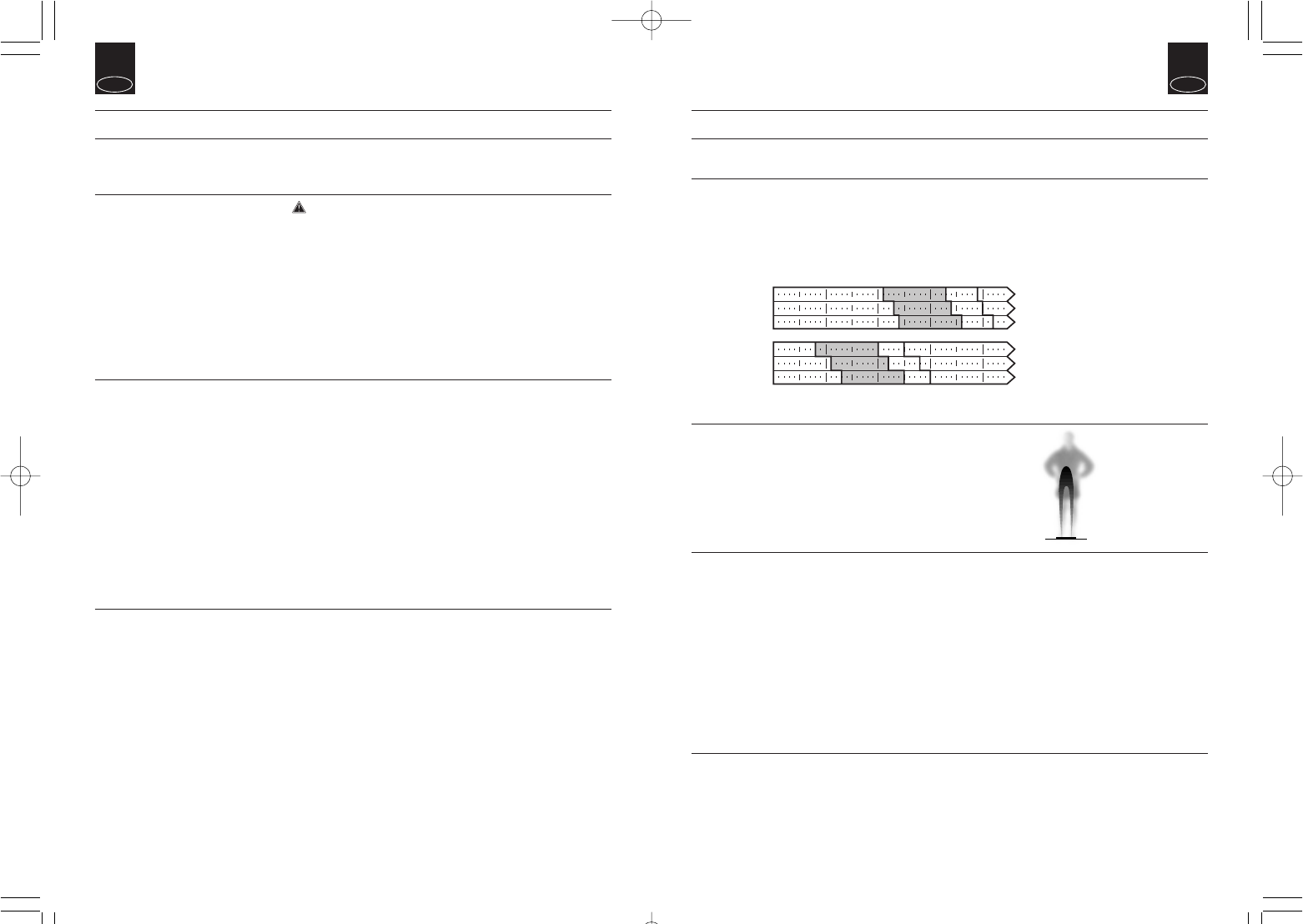
PRINCIPLES OF ESTIMATING BODY FAT PERCENTAGE
Tanita Body Fat Monitor/Scales allow you to determine your body fat
percentage at home as easily as you measure your weight.
What is Body Fat Percentage?
Body fat percentage is the percentage of fat in your body. Too much body
fat has been linked to conditions such as high blood pressure, heart
disease, diabetes, cancer, and other disabling conditions.
The BIA Method
Tanita Body Fat Monitor/Scales use the BIA (Bioelectrical Impedance
Analysis) technique. In this method, a safe, low-level electrical signal is
passed through the body. It is difficult for the signal to flow through fat in
the human body, but easy to flow through moisture in the muscle and other
body tissues. The difficulty with which a signal flows through a substance
is called impedance. So the more resistance, or impedance, the signal
encounters, the higher the body fat reading.
Body Fat Percentage Fluctuations in a Day
Hydration levels in the body may affect body fat readings. Readings are
usually highest in the early waking hours, since the body tends to be
dehydrated after a long night’s sleep. For the most accurate reading, a
person should take a body fat percentage reading at a consistent time of day
under consistent conditions.
Besides this basic cycle of fluctuations in the daily body fat readings,
variations may be caused by hydration changes in the body due to eating,
drinking, menstruation, illness, exercising, and bathing. Daily body fat
readings are unique to each person, and depend upon one’s lifestyle, job
and activities.
GB
20–39
40–59
60–79
Healthy Overfat ObeseUnderfat
Healthy Overfat ObeseUnderfat
Based on NIH/WHO BMI Guidelines.
As reported by Gallagher, et al,
at NY Obesity Research Center.
To determine the percentage of body fat
that is appropriate for your body,
consult your physician.
10%0% 20% 30% 40%
20–39
40–59
60–79
Female
Body Fat Ranges for Standard Adults
Age
Male
Age
1, 2
1
2
Tanita’s patented “foot-pad”
design sends a safe, low-
level electrical signal
through the body to
determine its composition.
2
GB
INTRODUCTION
Thank you for selecting a Tanita Body Fat Monitor/Scale. This model uses
the BIA (Bioelectrical Impedance Analysis) technique, a state-of-the-art
technology for body fat assessment.
Safety Precautions
• Persons with implanted electronic medical equipment, such
as a pacemaker, should not use the Body Fat Monitor feature
on this Tanita Body Fat Monitor/Scale. This Body Fat
Monitor/Scale passes a low-level electrical signal through
the body, which may interfere with the operation of a
pacemaker.
• The Tanita Body Fat Monitor/Scales are intended for home use only.
This unit is not intended for professional use in hospitals or other
medical facilities; it is not equipped with the quality standards required
for heavy usage experienced under professional conditions.
• Do not use this unit on slippery surfaces such as wet floors.
Important Notes for Users
BF-574/576 is intended for adults and children (ages 7-17) with inactive to
moderately active lifestyles and adults with athletic body types.
Tanita defines “athlete” as a person involved in intense physical activity
of approximately 10 hours per week and who has a resting heart rate of
approximately 60 beats per minute or less. Tanita’s athlete definition
includes “lifetime of fitness” individuals who have been fit for years but
currently exercise less than 10 hours per week.
The body fat monitor function is not intended for pregnant women,
professional athletes or bodybuilders.
Recorded data may be lost if the unit is used incorrectly or is exposed to
electrical power surges. Tanita takes no responsibility for any kind of loss
caused by the loss of recorded data.
Tanita takes no responsibility for any kind of damage or loss caused by these
units, or any kind of claim made by a third person.
Note: Read this Instruction Manual carefully and
keep it handy for future reference.
Note: Body fat percentage estimates will vary
with the amount of water in the body, and can be
affected by dehydration or overhydration due to
such factors as alcohol consumption,
menstruation, illness, intense exercise, etc.
1







